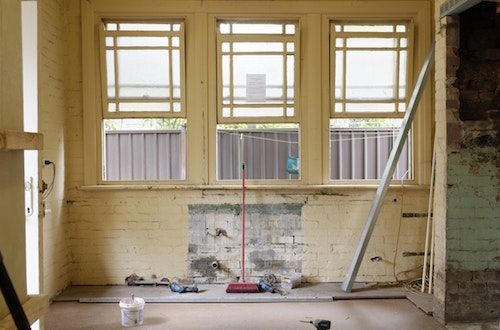Patience, persistence, and hard work have finally paid off. You’ve acquired that rental property you’ve always wished for. Congratulations! The journey wasn’t easy, but thankfully, it’s now time to reap the fruits of your labor.
However, that was only half of the equation. The other half is probably the most complicated part because it involves the property’s management.
You’ll need to answer this question – should you hire a property manager, or should you self-manage your property?
For most beginners, rental property investing is a fairly simple equation: profit = rental income – (mortgage + expenses). Sure, this simple equation is the principal investment mantra, however, property management involves a whole lot more. That’s why, for some property investors, it pays to hire a property manager. Alternatively, some investors have found success self-managing their properties as a way to trim down management expenses.
In this article, we are going to share the pros of each option to help you make the right decision.
Advantages of Self Managing Your Property

1. You care for your property more than anyone else.
Truth be told. No one will ever care about your properties as much as you do, and caring means effort. The additional effort can potentially be the difference between a property that bleeds money every month and one that performs.
2. It gives you an opportunity to gain experience.
Knowing the ins and outs of property management is extremely important. You’ll be better placed to evaluate how well others are managing your properties if you have some experience doing it yourself.
For example, you would know which method of property advertisement works best in your area and which ones are a complete waste of time and resources.
3. You will be able to avoid fraud.
Not all property management companies are created equal. Sadly, some may not be run ethically. They may engage in an unsavory activity, such as pocket rent from “vacant units” or receive kickbacks from contractors.
With some experience by managing your rental property yourself, you may be able to detect and avoid such fraud.
4. You have increased control.
Making decisions and implementing it yourself is a lot easier when self-managing your rental property, even if your property managers are really interested in following them through .
5. You have a chance to save money.
This is probably one of the main reasons why many people choose to manage their properties themselves. Property management companies usually charge between seven to ten percent of your monthly rent.
For example, if your property rents for $1,000 per month, your management fees will potentially be between $70 and $100.
Decide how much you value your time. For a low maintenance tenant, $120 might seem like a ton of money to give someone else to simply deposit a rent check. However, for a high-maintenance tenant, $120 for 4 hours (or more) of management might seem like a bargain.
Advantages of Using a Property Management Company

1. Provides an opportunity to outsource headaches.
Sadly, managing property has a reputation for producing headaches. Dealing with severe maintenance problems and angry tenants requires a thick skin.
Most renters are great people but finding them requires a great deal of experience and skill. On the other hand, bad tenants are easy to come by, especially without a good screening process.
If you find yourself in this situation, just outsource a headache to a management company. By doing this, you’ll be able to save a substantial amount of your time and energy.
2. You will be able to save time.
Self-managing your rental property requires time. Opportunity cost comes into play here; everything you do means you can’t do something else at that given moment. Outsourcing the managing of your property means you have more time to do other things.
You could, for example, make use of the extra time to simply enjoy your life or look for other potential properties to buy or other business opportunities.
3. The infrastructure is already in place.
In the beginning, it’s unlikely that you’ll have staff, policies or an office. However, management companies will have all the rental application forms, leases, entry notices, and other similar documents.
In addition to this, they will understand the rental laws that guide landlords and tenants in your specific state, as well as screening procedures. Management companies will also have a list of good contractors and vendors to use.
If you decide to self-manage your rental property, you have to put all these together.
Hiring a Property Manager
 If you choose to outsource the management of your property, the best bet is to begin asking for referrals from other successful investors. If another property investor has proven their track record, it’s much more likely that they will do well for you, as well.
If you choose to outsource the management of your property, the best bet is to begin asking for referrals from other successful investors. If another property investor has proven their track record, it’s much more likely that they will do well for you, as well.
Regardless of how you choose to look for them, it’s vital to vet the property management company meticulously prior to hiring them. The following are some questions you could ask before hiring a property management company:
- How do you intend to market my property?
- What do you do when a tenant doesn’t pay rent?
- What is the minimum charge for a maintenance visit?
- How do you handle maintenance requests?
- How do you screen tenants?
- How long do properties usually stay vacant before being leased?
- How many evictions do you have each month?
- What are your management fees?
Self-Managing Your Rental Property
 If you choose to self-manage your rental property, make sure that you are well-versed with the rental law that guides the landlord-tenant relationship. Plus, you need to understand the federal fair housing rules. Alternatively, hire an attorney to do it for you instead.
If you choose to self-manage your rental property, make sure that you are well-versed with the rental law that guides the landlord-tenant relationship. Plus, you need to understand the federal fair housing rules. Alternatively, hire an attorney to do it for you instead.
Additionally, you’ll need to create or gather all the required paperwork (application, lease and more). Standard forms are available either online or at most office supply stores. If you go the Do-It-Yourself (DIY) route, consider hiring a good local attorney.
You’ll also need to formulate universal policies. For instance, whether you will accept payment plans, when late fees apply and how much it will be when to file for an eviction, and so on.
Buying a rental property is a great way to diversify your portfolio and build equity. However, as with any other investment, it has its challenges. Management is definitely one of those, but don’t let it discourage you from becoming an investor.
Whether hiring a property manager or doing it yourself, all it takes is a diligently executed plan.
